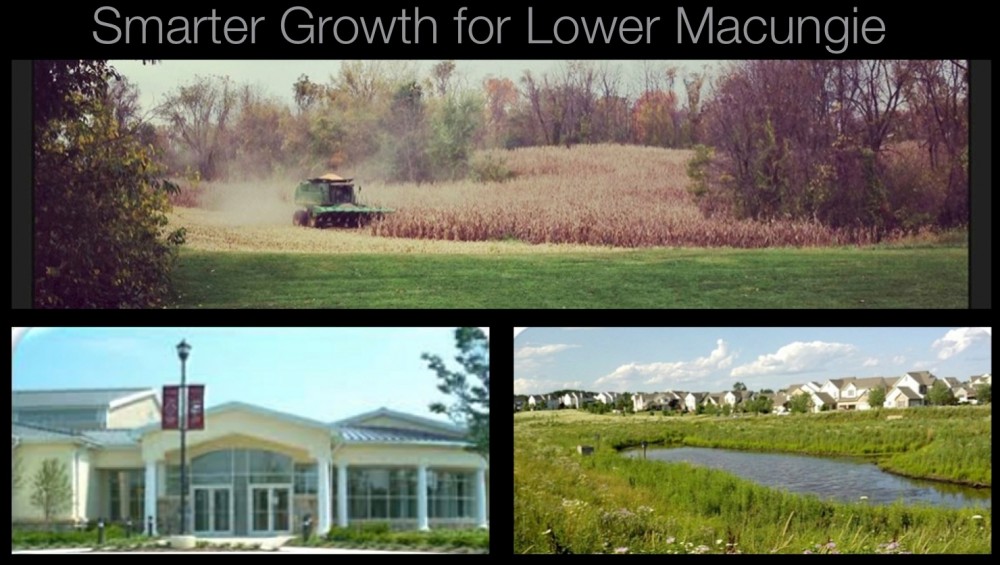I am adapting this from a Facebook post I made this AM where I posted a link to the latest Mcall piece by Pat Lester. In it all seated Commissioners weigh in. (Pat by the way who does a great job of covering local Lower Macungie Issues)
I provided Pat a quote at his request for the article but it didn’t get included. Likely my fault. I was asked for 1 or 2 sentences and provided a paragraph. The short answer is ‘No’ I do not want a local property tax. I do not want ANY of my taxes to go up. No one who owns a home does.
The problem however is this issue deserves more thought then a boilerplate quote. It’s much more complicated due to unique circumstances here in LMT. I won’t be an elected official who waters down complicated issues to get a quote in the paper. Some issues lend themselves to that, some like this issue do not.
Below is the quote I provided. I’m unwilling to commit the township to another period of hyper growth to put off a property tax another 5 years. Not only will this hurt our quality of life, but one time windfall revenue associated with hyper growth does not make a sustainable financial policy. As the article outlines, we were able to eliminate the tax because of the large reserve fund that was the result of 40% growth over 2 decades. (Going from roughly 15,000 when eliminated to over 31,000 residents now)
Long term, sustainable low taxes are my goal. While I respect Commissioner Conrad’s opinion that taxes will inevitably be raised if we open the doors again, I respectfully disagree. We can have a stable low tax rate without fear of it rising. I don’t always see eye to eye with Ryan, but generally we’re in the same ballpark and he has been commenting about the subject on his social media and engaging residents which I always appreciate.
So how do we ensure that if we enact a tax we can keep it low? The answer is smart growth. Financial sustainability is precisely what smart growth is all about. Growing in a way where revenue exceeds liabilities and demonstrating this by conducting lifecycle cost benefit analysis of proposed zoning changes is critical. I have been consistently advocating for this for a little over a year.
This will be one of the first items I propose if elected in January. That any proposed up-zoning of open space or farmland be accompanied with a cost benefit analysis of the potential impacts. Remember, farmland and open space costs the taxpayers very little if anything in liabilities. It generates no traffic, it creates no crime, it puts no new students into our schools and it contributes positively to the tax base. We have no obligation to up-zone any property unless there is a financial benefit to the community.
Also of note I do echo Conrad’s call for the township manager to provide the BOC with a list of alternative tax/fee options to the proposed. 33 mill real estate tax. The First Class Township Code and the Local Tax Enabling Act provide several different tax/fee options that can be considered as alternatives to a real estate tax. These and all options should be explored.
The only option I personally will not support in any way shape or form is initiating another period of “hyper growth” through en masse zoning changes to artificially keep taxes low. That strategy is selling out the future. Relying on one time building permits, real estate transfer tax or the selling off of township assets does not make a sustainable or responsible fiscal policy. We’ve been playing with fire for a decade. It’s time to stop gambling and start planning. The fund balance policy was a fantastic start.
With smart growth yes, we can maintain a low sustainable tax rate. If we bury our heads in the sand and sell the township to the highest bidder for near term cash we will bury our future under a mountain of liabilities. Blindly up-zoning large swaths of agriculture protected land in the western portion of the township to industrial and commercial uses is doing just that. We cannot continue to swap short term gains for long term liabilities. The smart growth plan reinforces the need to encourage growth in locations where we get a return on investment since infrastructure will already be in place to handle impacts. Namely the Hamilton Corridor. Projects like Hamilton Crossings. (without the public funding aspect..)
Here was the quote I provided:
“The tax issue goes hand in hand with poor growth decisions. We’re now much closer to needing our own police force while our infrastructure obligations continue to grow. Over the years we’ve swapped near-term cash for long term obligations. This has hurt our quality of life and put us in an unsustainable financial position. On the horizon is a time-bomb of unfunded liabilities. No one wants to initiate a property tax but due to poor development decisions the luxury of having a choice may soon be taken away from us. If we don’t control growth now the tax we face now will be nothing compared to what we face in 10 years. “

